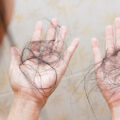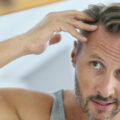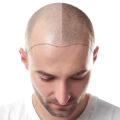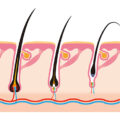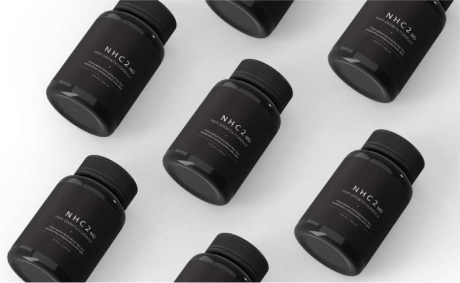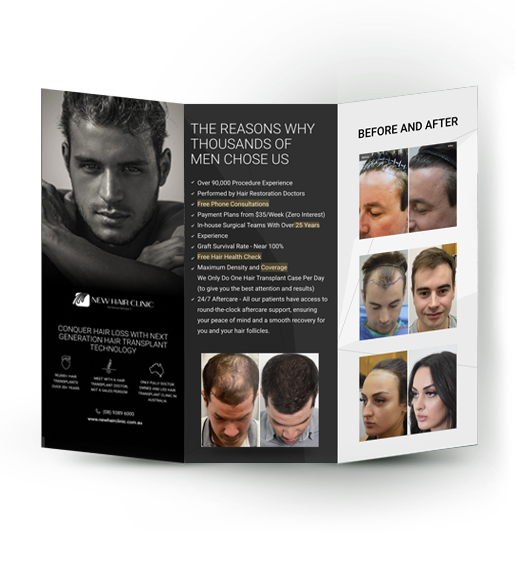Last updated on June 3, 2024
[starbox]
Regular gym workouts offer numerous benefits for our physical and mental well-being. However, rumours have circulated that these exercises can lead to hair loss, deterring some individuals. Let’s explore the facts behind this claim.
The speculation arises from the impact of exercise on hormone levels, particularly testosterone and dihydrotestosterone (DHT), which affects hair growth. Here’s the good news: direct hair loss caused by bodybuilding and gym workouts is unlikely. However, certain factors outside the gym, such as supplements taken to support workouts, can potentially affect your hair health.
Research suggests that excessive consumption of protein supplements and performance-enhancing drugs may contribute to or accelerate hair loss. In this blog post, we’ll examine the science behind hormones and hair growth, as well as the supplements involved, to provide you with peace of mind during your weightlifting sessions.
Understanding the Role of Hormones in Hair Growth
The association between exercise and hair loss stems from the influence of hormones, particularly testosterone. While often referred to as the male sex hormone, testosterone is present in both men and women, albeit in varying levels. Numerous studies indicate that exercise can temporarily increase testosterone levels, which alone does not cause concern. However, a specific type of testosterone can convert into DHT, known to shrink hair follicles and impede hair growth.
Do Gym Workouts Lead to Hair Loss?
Your regular gym visits are unlikely to affect the hair on your head. Limited studies have found no significant links between exercise intensity or frequency and hair loss. Although one observational study reported a higher incidence of alopecia (hair loss) in a group engaged in low-intensity exercise as the frequency increased, it does not provide substantial evidence that exercise causes hair loss.
Can Bodybuilding Contribute to Hair Loss?
Let’s address this concern directly: there is no established connection between bodybuilding as an activity and hair loss. While testosterone levels temporarily rise after endurance and resistance exercises like weightlifting, these short-term spikes are unlikely to have a lasting impact on hair loss. Genetics predominantly determine baldness, with few lifestyle factors influencing hair loss. One exception, however, is the use of anabolic steroids, a performance-enhancing drug.
The Link Between Hair Loss and Supplements
Many athletes and fitness enthusiasts rely on nutritional supplements to enhance muscle mass and aid recovery. While numerous supplements are available over the counter, concerns regarding their impact on hair health have emerged.
Creatine, amino acids, and protein supplements are common among fitness enthusiasts. Let’s explore their potential effects on hair health.
- Creatine: Limited research provides little evidence to suggest a link between creatine and hair loss. Although one study found a connection between creatine and elevated DHT levels, which can shrink hair follicles, most studies indicate that creatine has no effect on testosterone levels.
- Amino Acids: Amino acids are essential for dietary protein synthesis, and they rank among the most popular sports supplements. While research on amino acids and hair health remains limited, there is evidence suggesting that amino acid deficiencies may contribute to hair loss. However, the impact of amino acid supplements on hair growth requires further investigation.
- Protein Powder: Protein supplements, such as whey protein, are widely used for building and preserving muscle mass. Whey protein, available in concentrate (WPC) or isolate (WPI) forms, is a popular choice. While there is no evidence that protein supplements directly cause hair loss, a study in 2017 found that WPI supplements may accelerate hair loss in males with hereditary male pattern hair loss. However, the role of protein supplements in improving hair growth remains unclear.
- Performance-Enhancing Drugs (PEDs): Athletes may be tempted to use PEDs to increase muscle mass and aid recovery. Anabolic-androgenic steroids, in particular, can reduce muscle damage and enhance workout recovery. However, they are associated with adverse effects, including hair loss.
Are the Side Effects Reversible?
The good news is that any hair loss caused by performance-enhancing drugs or supplements can be reversed. Discontinuing the use of these substances, combined with appropriate medications, can slow hair loss and stimulate regrowth. It is crucial to take early action.
Conclusion
There’s no need to worry excessively about your workouts leading to significant hair shedding. However, certain supplements and drugs may contribute to hair loss, especially if you are genetically predisposed to the condition. The NHCmd range of prescription medications offer a convenient solution to reverse hair loss. Learn more about our hair loss treatments and book an appointment to reclaim a healthy head of hair.


